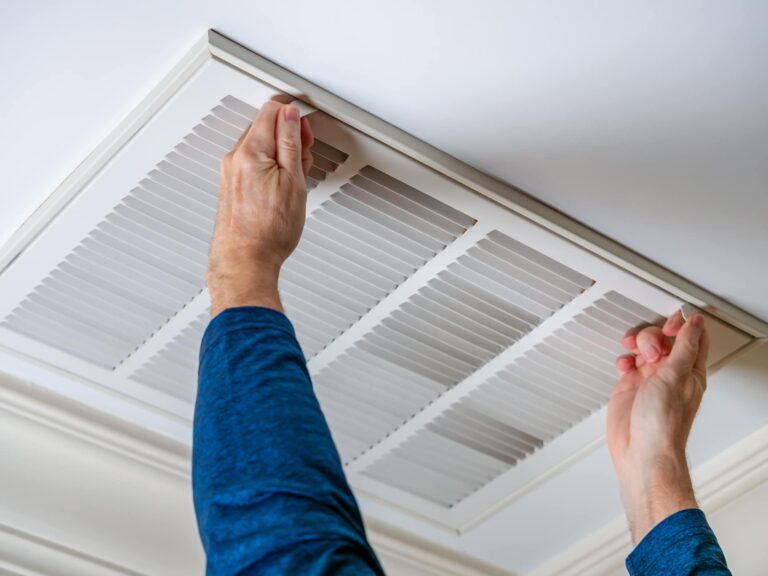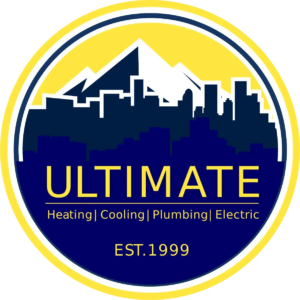Many homeowners want to make energy-efficient HVAC upgrades to reduce energy usage and monthly bills. Switching to electric options and ENERGY STAR-certified heating and cooling equipment often decrease energy consumption significantly, especially when paired with other residential energy improvements like solar panel installation.
While initial costs can deter homeowners from upgrading to energy-efficient HVAC, several federal tax credits and rebate programs are available to lower the price. Learn how to take advantage of the Inflation Reduction Act’s HVAC rebates and tax credits to offset the purchase price of energy-efficient HVAC for your Denver home.
The Inflation Reduction Act and Energy Efficiency
The US Government passed the Inflation Reduction Act in August 2022, providing $500 billion towards reducing carbon emissions in addition to lowering healthcare and drug costs. The act dedicates roughly $395 billion to energy and climate funding through tax credits for businesses and consumers. About $43 billion is specifically for consumer incentives to encourage energy-efficient home improvements.
The 25C Energy Efficiency Home Improvement tax credit, High Efficiency-Electric Home Rebate (HEEHR) Program, and HOMES Rebate Program are three components of the Inflation Reduction Act that can potentially apply to your energy-efficient HVAC upgrades.
The 25C Energy Efficiency Home Improvement Tax Credit
Several heating and cooling upgrades are covered 30% up to $600 or $2,000 of the project’s cost under the 25C Energy Efficiency Home Improvement Tax Credit:
• Central Air Conditioners Tax Credit: 30% up to $600
• Furnaces (Natural Gas, Oil) Tax Credit: 30% up to $600
• Heat Pump Water Heaters Tax Credit 30% up to $2,000
• Hot Water Boilers (Natural Gas, Propane, Oil) Tax Credit 30% up to $600
Geothermal Heat Pumps Tax Credit
• 30% for property placed in service after December 31, 2016, and before January 1, 2020
• 26% for property placed in service after December 31, 2019, and before January 1, 2022
• 30% for property placed in service after December 31, 2021, and before January 1, 2033
• 26% for property placed in service after December 31, 2032, and before January 1, 2034
• 22% for property placed in service after December 31, 2033, and before January 1, 2035
• Water Heaters (Natural Gas) Tax Credit 30% up to $600
The High Efficiency-Electric Home Rebate (HEEHR) Program
The Inflation Reduction Act allots $4.275 billion for the High Efficiency-Electric Home Rebate Program, which each State Energy Office distributes in rebates to low- and moderate-households. HEEHR covers 100% of the project costs for those making less than 80% of the local median income annually and covers 50% for households making 80%-150% of their local median income. Each household can receive up to $14,000 for qualified electrification projects.
For energy-efficient HVAC upgrades in Colorado, the following upgrades qualify under HEEHR:
• Heat Pump HVAC $8,000
• Heat Pump Water Heater $1,750
• Weatherization: insulation, air sealing, ventilation $1,600
The HOMES Rebate Program
The Home Energy Performance-Based, Whole-House (HOMES) Rebate program in Colorado allocates up to $4,000 for whole-house retrofits, doubling to $8,000 for low-income households making less than 80% of the local median income annually. The project coverage depends on the energy savings from the improvements:
• Energy savings of 20-35%: The rebate covers the lower amount between 50% of the project cost or $2,000. Low-income households can receive up to 80% of the project cost or $4,000, whichever is lower.
• Energy savings of 35% or more: The rebate covers the lower amount between 50% of the project cost or $4,000. Low-income households can receive up to 80% of the project cost or $8,000, whichever is lower.
The HOMES and HEEHR programs cannot fund the same project; however, homeowners may combine each with state/utility rebate programs and the 25C Energy Efficiency Home Improvement Tax Credit.
Further HVAC Benefits for Low- or Moderate-Income Households
Weatherization Assistance Program
If your household receives Supplemental Security Income, Aid to Families with Dependent Children, or is below 200% of the poverty income guidelines, the Weatherization Assistance Program can help with upgrades like furnace replacement or heat pump installation. Contact your local Colorado service provider for more information.
Low-Income Energy Assistance Program
If you’re an eligible low-income household interested in making weatherization and energy home improvements, The Low Income Home Energy Assistance Program (LIHEAP) could help. See if you qualify and apply for LIHEAP here.
How to Find the HVAC Rebate or Benefit for You
The best way to ensure that your energy-efficient HVAC upgrade qualifies for HVAC rebates is to contact your local HVAC partner. Our team at Ultimate has decades of experience and intimate knowledge of the most current HVAC tax credits and rebates. We’ll confirm which HVAC equipment, like heat pumps, meet ENERGY STAR standards so you get the most savings possible. There is also an ENERGY STAR Rebate Finder to search local incentives through your utility company to get you started.
Make the most of HVAC tax benefits and rebates to lower the cost of energy-efficient HVAC upgrades to your Denver Metro home. You’ll maximize savings on the initial purchase and save every month afterward through lower monthly energy bills. Contact us today to discuss your home efficiency goals.


